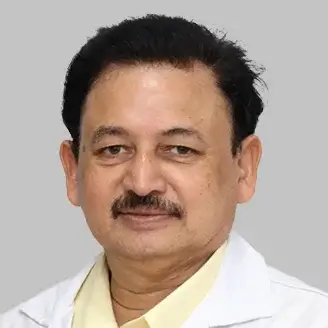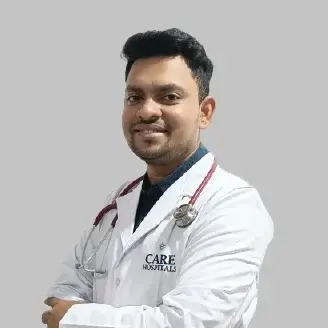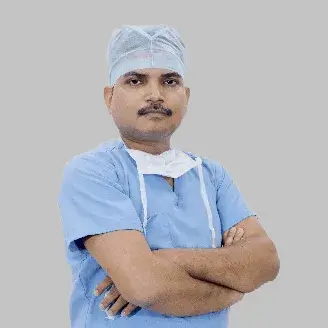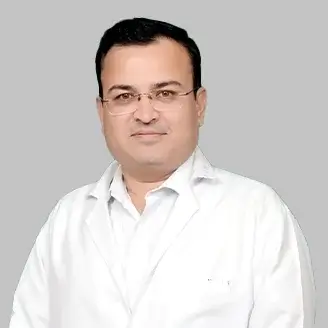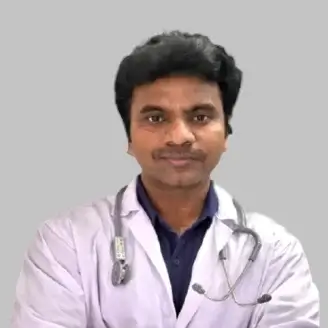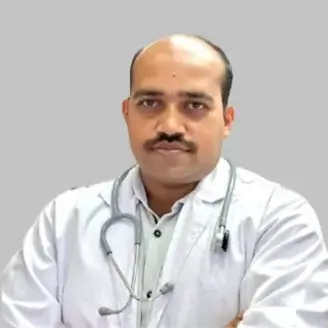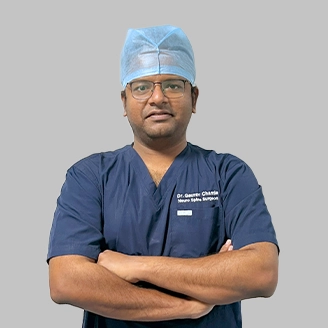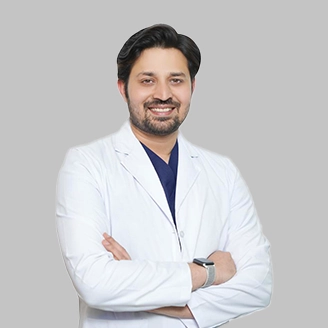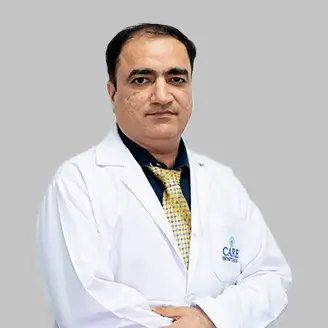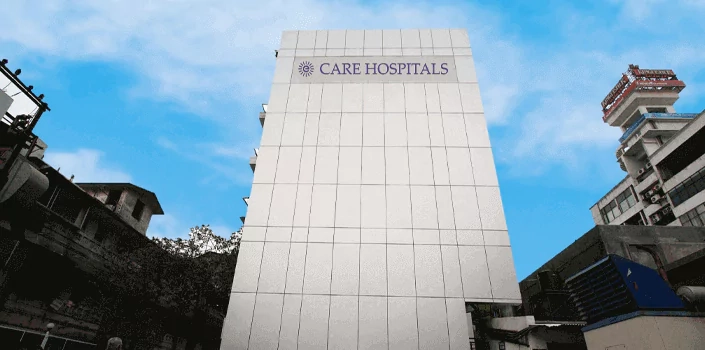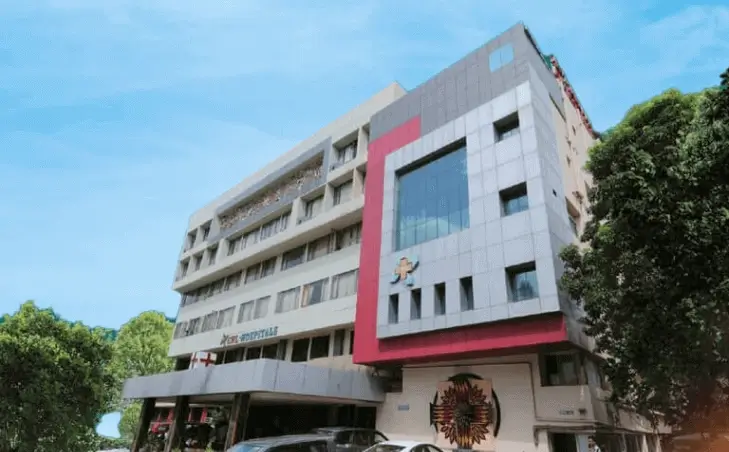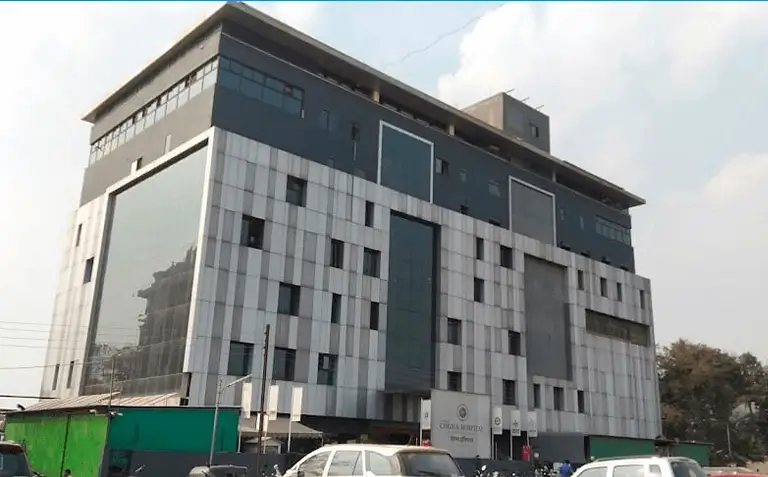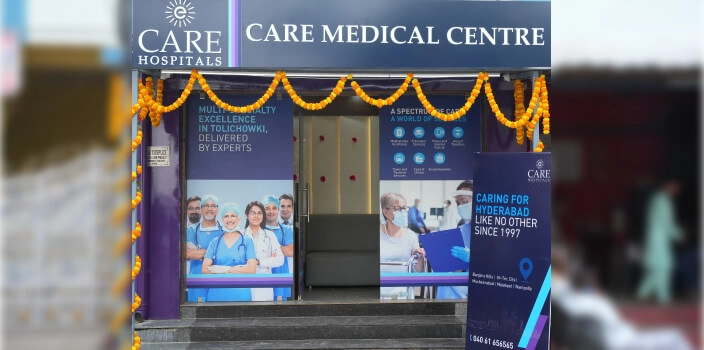-
Doctors
-
Specialities & Treatments
Centre of Excellence
Specialties
Treatments and Procedures
Hospitals & Directions HyderabadCARE Hospitals, Banjara Hills CARE Outpatient Centre, Banjara Hills CARE Hospitals, HITEC City CARE Hospitals, Nampally Gurunanak CARE Hospitals, Musheerabad CARE Hospitals Outpatient Centre, HITEC City CARE Hospitals, Malakpet
HyderabadCARE Hospitals, Banjara Hills CARE Outpatient Centre, Banjara Hills CARE Hospitals, HITEC City CARE Hospitals, Nampally Gurunanak CARE Hospitals, Musheerabad CARE Hospitals Outpatient Centre, HITEC City CARE Hospitals, Malakpet Raipur
Raipur
 Bhubaneswar
Bhubaneswar Visakhapatnam
Visakhapatnam
 Nagpur
Nagpur
 Indore
Indore
 Chh. Sambhajinagar
Chh. SambhajinagarClinics & Medical Centers
Book an AppointmentContact Us
Online Lab Reports
Book an Appointment
Consult Super-Specialist Doctors at CARE Hospitals

Best Hospital for Traumatic Head Injury Surgery in Bhubaneswar
- Advanced Technology
- Shorter Hospital Stay
- Pre & Post-Operative Care
- All Insurance Accepted

Chat With Our Experts
Get second opinion on Whatsapp
25 lakhs+
Happy Patients
Experienced and
skilled surgeons
17
Health Care Facilities
Top most Referral Centre
for Complex Surgeries
Advanced Traumatic Head Injury in Bhubaneswar
A traumatic head injury occurs when a sudden trauma damages the brain. This type of injury happens when a person's head suddenly and violently hits an object or when an article penetrates the skull and enters delicate brain tissue.
The brain remains vulnerable to various injuries despite being protected by the skull and cerebrospinal fluid. These traumas range from mild concussions to severe brain damage, depending on the force and nature of the impact. Traumatic head injury treatment includes emergency care, imaging, medications, surgery, rehabilitation, and monitoring to reduce swelling, control bleeding, and restore function.
Types of Traumatic Head Injury
The main types of traumatic head injuries include:
- Concussion: It is a mild brain injury that temporarily affects brain function. The brain moves briskly inside the skull, causing chemical changes and sometimes stretching blood vessels.
- Contusion: A bruise on the brain tissue, often occurring directly under the point of impact.
- Diffuse Axonal Injury: A severe condition where brain tissue tears as the brain shifts and rotates inside the skull. This type affects multiple areas of the brain simultaneously.
- Hematoma: Hematoma (blood collection outside the blood vessels) can form between the skull and brain tissue or within the layers of the brain's protective covering.
- Skull Bone Fracture: A break in the skull bone that might or might not penetrate the brain tissue. Linear fractures are the most common, while depressed fractures push bone fragments toward the brain.
Best Traumatic Head Injury Surgery Doctors in India


Causes of Traumatic Head Injury
These injuries primarily result from direct blows to the head or sudden, forceful movements that cause the brain to collide with the inner surface of the skull.
The most common causes include:
- Road traffic accidents involving cars, motorcycles, bicycles, or pedestrians
- Falls from heights or on level ground, particularly among older adults and children
- Sports-related impacts, notably in contact sports like rugby, boxing, and football
- Physical assaults and violence
- Workplace accidents, particularly in the construction and manufacturing industries
- Military combat injuries and explosions
- Accidents during recreational activities and extreme sports
Traumatic Head Injury Symptoms
- Physical Symptoms: First, physical symptoms appear:
- Persistent headache or neck pain
- Blurred or double vision
- Dizziness and balance problems
- Nausea and vomiting
- Sensitivity to light and sound
- Ringing in the ears
- Change in sleep patterns
- Unusual drowsiness or difficulty waking up
- Cognitive Symptoms: Sometimes, after head injury, cognitive symptoms might surface, affecting mental processes and behaviour. These include:
- Memory problems
- Difficulty concentrating
- Confusion
- Slower thinking
- Slurred speech
- Struggle with finding the right words
- Emotional and Behavioural Changes: Some individuals experience sudden mood swings, increased irritability, or anxiety. Others might show signs of depression or personality changes that family members notice first.
Diagnostic Tests for Traumatic Head Injury
The primary diagnostic tools include:
- Glasgow Coma Scale (GCS): A standardised assessment that checks eye movement, verbal response, and motor skills
- CT Scan: Creates comprehensive cross-sectional images of the brain to reveal bleeding, swelling, or skull fractures
- MRI Scan: Produces detailed images of brain tissue to identify subtle injuries not visible on CT scans
- Neurological Examination: Checks reflexes, coordination, strength, and cognitive function
- Intracranial Pressure Monitoring: Measures pressure inside the skull through a small probe
Treatment Options for Traumatic Head Injury
For mild head injuries, the main focus remains on:
- Complete rest and careful monitoring
- Over-the-counter pain relief for headaches
- Gradual return to normal activities
- Regular medical check-ups
Moderate to severe cases require immediate emergency care. Surgical intervention becomes necessary in certain cases. Surgeons perform surgical procedures to:
- Remove blood clots
- Repair skull fractures
- Relieve pressure inside the skull
- Create space for swollen tissues
Traumatic Head Injury Surgery Procedure
Common surgical procedures include:
- Craniotomy: Removing part of the skull bone to access the brain
- Craniectomy: Removing a section of the skull to reduce pressure
- Hematoma Removal: Draining blood clots from the brain
- Skull Fracture Repair: Fixing broken skull bones
- Shunt Placement: Managing cerebrospinal fluid buildup
The duration of surgery ranges from two to six hours, depending on the complexity of the injury.
Pre-traumatic Head Injury Surgery Procedures
The pre-surgery process starts with a thorough medical assessment. Blood tests check clotting factors and organ function, whilst chest X-rays and ECG monitor heart health. The anaesthesia team reviews medical history, current medications, and any allergies.
Patients must follow these essential preparation steps:
- Stop eating and drinking 8-12 hours before surgery
- Remove all jewellery, contact lenses, and dentures
- Change into hospital gowns and wear identification bands
- Sign necessary consent forms after understanding the procedure details
- Complete final vital sign checks and medication reviews
During Traumatic Head Injury Surgery Procedures
The main steps of the procedure unfold methodically:
- Anaesthesia administration, preferably general anaesthesia
- Making the scalp incision and controlling bleeding
- Creating small holes in the skull
- Removing the bone flap to access the brain
- Addressing the specific injury or removing blood clots
- Repairing damaged blood vessels or brain tissue
- Closing the surgical site carefully
Post-traumatic Head Injury Surgery Procedures
Recovery after a head injury surgical procedure is vital to regain proper functioning. Patients receive specialised care focusing on the following:
- The first 24-48 hours prove critical for patient stabilisation. Medical staff check pupil responses, movement abilities, and consciousness levels every hour.
- The surgical team will monitor blood pressure, heart rate, and oxygen levels through advanced monitoring equipment.
- Pain management through controlled medication
- Prevention of post-surgical complications
- Regular neurological assessments
- Wound care and infection prevention
- Early mobilisation as permitted
Why Choose CARE Hospitals for a Traumatic Head Injury Surgery Procedure?
CARE Hospitals stands among the leading medical institutions in Bhubaneswar for treating traumatic head injuries.
The hospital's dedicated neurosurgery department combines advanced medical technology with experienced specialists to provide comprehensive care for head trauma patients.
The neurosurgical team at CARE Hospitals brings decades of combined experience handling complex head injuries. These specialists work alongside skilled nurses, physiotherapists, and rehabilitation experts to ensure complete patient recovery.
The hospital offers several distinctive advantages:
- State-of-the-art neuroimaging facilities for precise diagnosis
- Round-the-clock emergency neurosurgical services
- Advanced intensive care units with neuro-monitoring capabilities
- Dedicated rehabilitation programmes for post-surgery recovery
- Experienced trauma care teams trained in managing critical cases
The hospital's approach primarily focuses on personalised treatment plans, considering each patient's specific injury pattern and overall health condition. The medical teams constantly communicate with families, providing regular updates about treatment progress and recovery milestones.
The hospital's commitment to excellence extends beyond surgical procedures. Their rehabilitation programmes help patients regain independence through targeted therapies and exercises. Therefore, patients receive continuous support from admission through recovery, ensuring the best possible outcomes for traumatic head injuries.
Traumatic Head Injury Surgery Hospitals in India
-
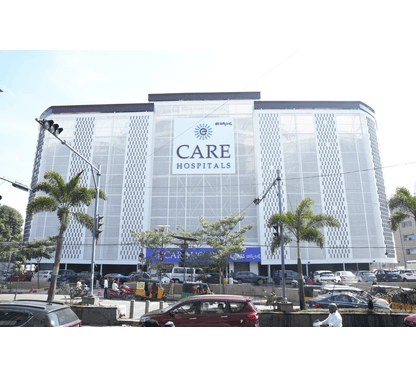
CARE Hospitals, Banjara Hills, Hyderabad
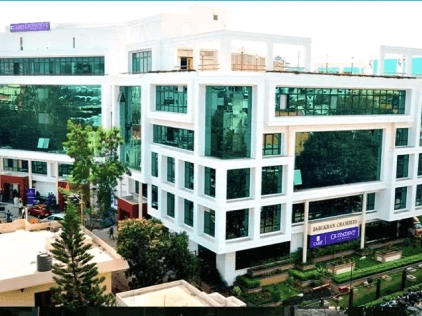
CARE Hospitals Outpatient Centre, Banjara Hills, Hyderabad
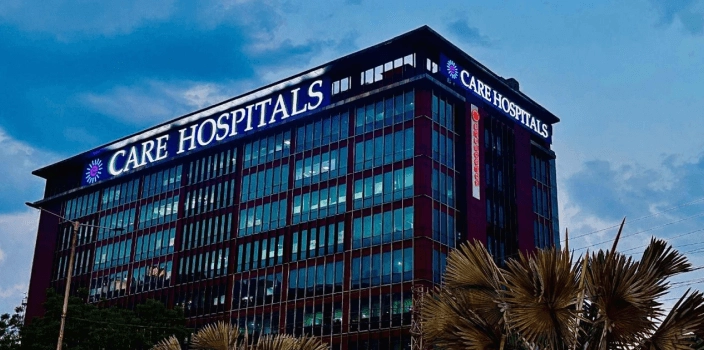
CARE Hospitals, HITEC City, Hyderabad
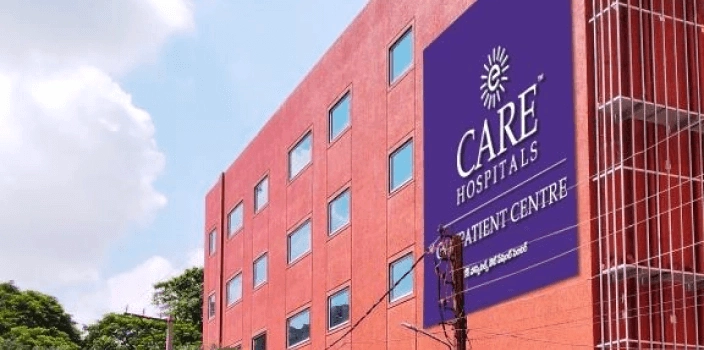
CARE Hospitals Outpatient Centre, HITEC City, Hyderabad
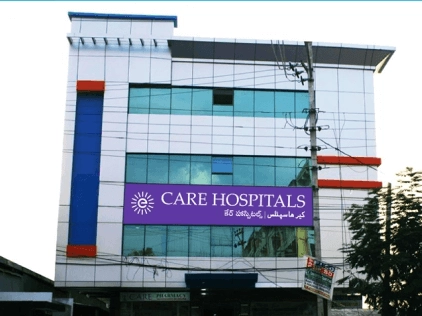
Gurunanak CARE Hospitals, Musheerabad, Hyderabad
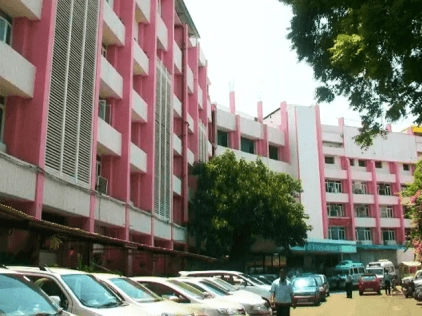
CARE Hospitals, Nampally, Hyderabad
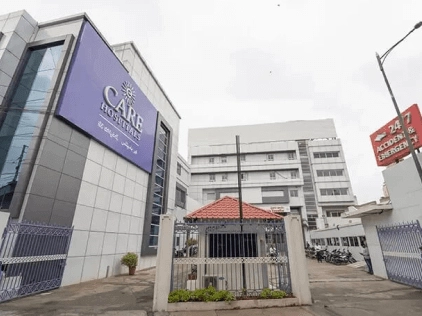
CARE Hospitals, Malakpet, Hyderabad
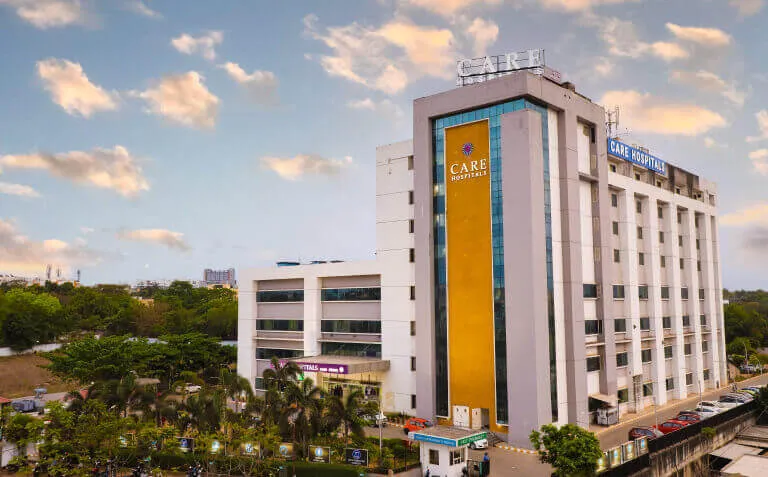
CARE Hospitals, Bhubaneswar
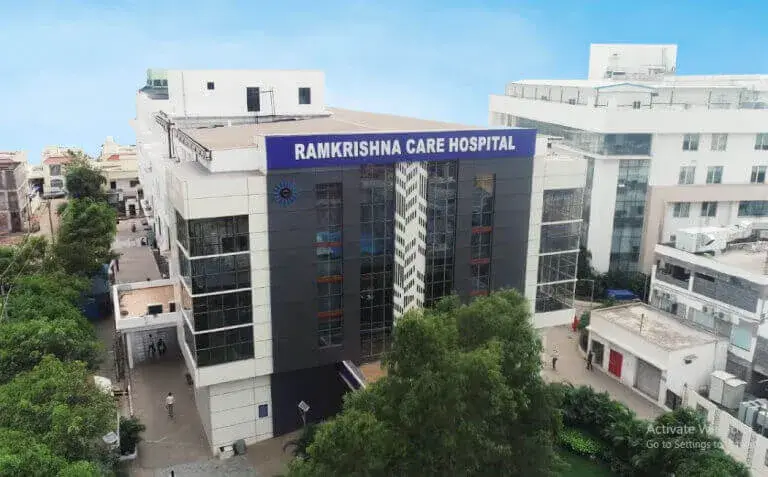
Ramkrishna CARE Hospitals, Raipur
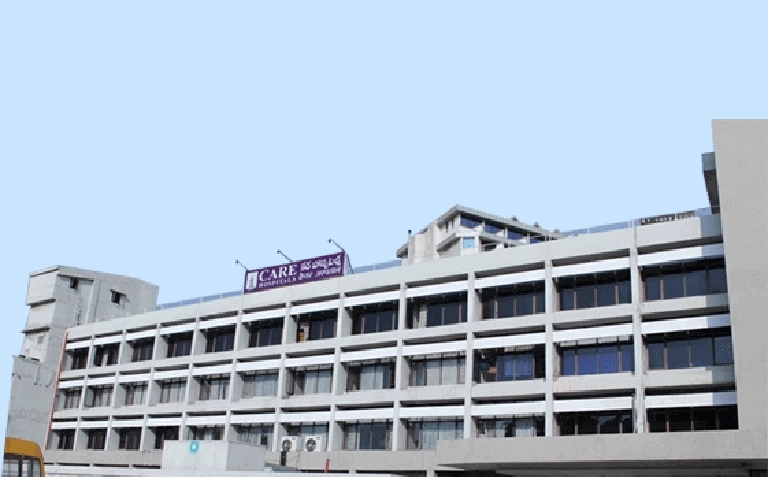
CARE Hospitals, Ramnagar, Visakhapatnam
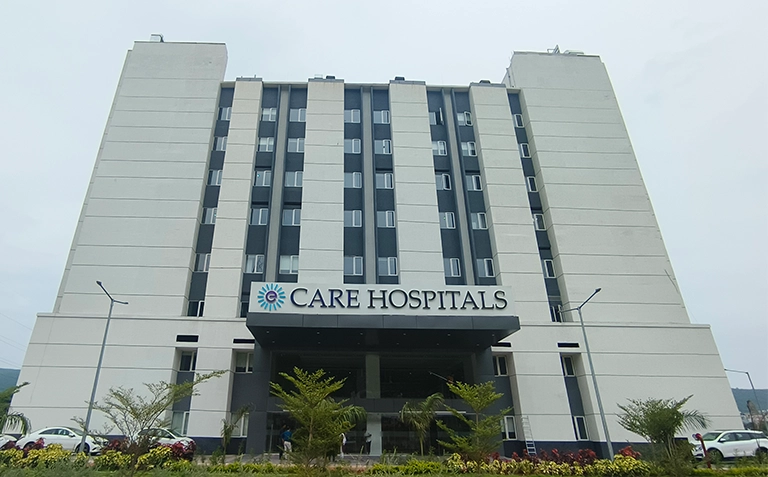
CARE Hospitals, Health City, Arilova
Related Surgeries
- Best Hospitals for Laminectomy Surgery in Hyderabad
- Best Hospital for VP Shunt Surgery in Hyderabad
- Best Hospital for Polytrauma Surgery in Hyderabad
- Best Hospitals for Cervical Spondylosis Surgery in Hyderabad
- Best Hospital for Brain Haemorrhages Surgery in Bhubaneswar
- Best Hospital for Lumbar Canal Stenosis Surgery in Bhubaneswar
- Best Hospital for Brain Tumor Surgery in Bhubaneswar
- Best Hospitals for Lumbar Disk Surgery in Bhubaneswar
- Best Hospital for Stroke Surgery in Bhubaneswar
- Best Hospital for Spinal Fracture Treatment in Bhubaneswar
- Best Hospital for Traumatic Head Injury Surgery in Bhubaneswar
- Best Hospital for Trigeminal Neuralgia Surgery in Bhubaneswar
- Best Hospital for Microvascular Decompression Surgery in Hyderabad
- Best Hospital for Complex Brain Tumour Surgery in Hyderabad
Frequently Asked Questions
CARE Hospitals are among the best traumatic head injury treatment departments in Bhubaneswar, offering world-class treatment with highly skilled specialists.
The most effective treatment depends on injury severity. Mild cases need rest and pain relief, whilst severe cases require emergency care, surgery, and comprehensive rehabilitation.
Indeed, recovery chances are promising. Studies show that 70% of patients with moderate to severe injuries live independently after two years, and 50% return to driving.
Post-surgery care involves:
- Regular neurological assessments
- Pain management
- Infection prevention
- Physical therapy
- Occupational therapy
- Speech therapy when needed
Recovery timelines vary significantly. Mild cases typically improve within weeks, whilst moderate to severe cases may take six months to several years.
Primary complications include bleeding, infection, and brain swelling. Some patients experience memory problems, speech difficulties, or balance issues.
Patients receive detailed care instructions, medication schedules, and follow-up appointment plans upon discharge. Regular outpatient visits monitor recovery progress.
Doctors advise against screen time, physical exertion, and driving until cleared. Patients should also avoid activities involving heights or quick movements.
A traumatic head injury occurs when external force damages the brain, either through direct impact or penetrating injury. These traumatic injuries range from mild concussions to severe brain trauma.
Still Have a Question?


